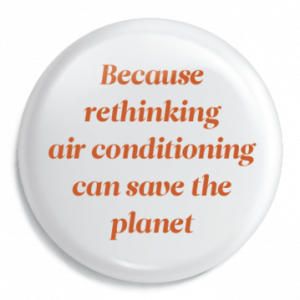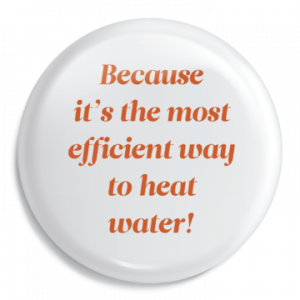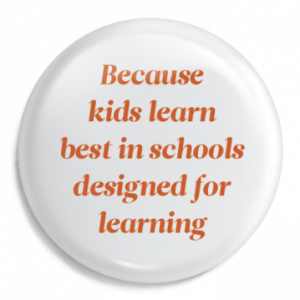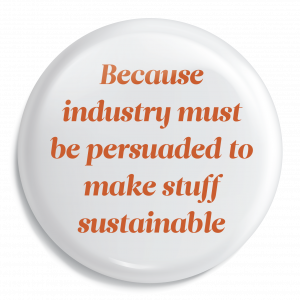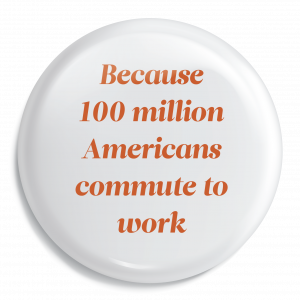Eneref Impact Campaigns look to cast issues in a different light. We encourage the understanding of measures required for conservation, as well as the propagation of important information through the media. Eneref uses campaigns to cooperate with state agencies and international organizations in developing educational and public awareness programs.
Eneref impact campaigns are designed to make headlines, create a common understanding of how to think about an issue and get people to take action. A group becomes much more likely to act when each individual member knows that every other member also knows about a crucial topic. The information may already be known, but their needs to be a common understanding of how to receive the information.
The Net Zero Ready Campaign advocates the maximization of communities’ energy efficiency through the implementation of technology, including windows, insulation, HVAC systems, and skylights, that exceeds minimum industry standards. Net Zero Ready buildings not only bring multiple long-term benefits to the environment but also immediate advantages to building occupants.
In order to minimize climate change catastrophes, CO2 emissions must considerably decrease in a short period of time. Net Zero Ready buildings are at least 40%-50% more energy-efficient than typical buildings and can offset all or most of their annual energy consumption with modest renewable energy systems.
The Right To Daylight Campaign encourages homeowners, architects, and building owners to use daylight as a primary light source. Natural interior daylight offers a multitude of benefits beyond energy savings. It is the highest quality light source available for interior environments and provides excellent color rendering and color balance.
In commercial buildings, natural interior daylight is one of the fastest greenhouse gas reducing paybacks you can buy, because it shrinks both energy bills and re-lamping maintenance costs. The fact is, introducing daylight into buildings provides energy savings, excellent lighting quality and more beautiful interior spaces.
The Code for Climate campaign calls for stronger enforcement of existing mandatory building codes as well as more robust codes for manufacturers and specifiers of building enclosure components (including windows, doors, walls, roofs, framing, cladding, insulation and foundations), in order to strengthen the entire building envelope against climate change catastrophes.
The growing number of property and casualty insurance claims evidences our changing weather. Compliance with existing mandatory building codes and above-code construction are the first steps towards limiting the damage caused by severe weather events. The goal of this campaign is to speed up recovery after natural disasters, prevent disruption to families and businesses, ease pressure on insurance companies and reduce the need for disaster assistance.
The roadmap to more efficient residential air conditioners should begin at the state level. Inverter-driven technology is more efficient under real-world conditions, rebates based on EER score alone unfairly penalize inverter technology. Unlike single- or multi-stage technology, inverter-driven technology adjusts compressor speed, and thus how much electricity is needed. VRV systems can operate at partial load, whereas single- and multistage units only operate under high-speed operating conditions.
Lead The Leap
The goal of the Paris Climate Agreement is to limit global warming to pre-industrial levels. In 2020, the United States GDP was $20 trillion dollars in mostly carbon-driven goods and services. However, “Countries that we’ve commonly referred to as ‘underdeveloped’ now have an extraordinary opportunity to leapfrog the industrial revolution into the decarbonized circular economy of the current millennium,” explains Seth Warren Rose, Founding Director of Eneref Institute. “While some see this as aspirational, in fact it’s urgently necessary.”
The commercial world wants to gain entry to the enormous mineral resources of what are often referred to as under-developed countries, but this can and should be done sustainably.
Our goal of this Constellation Networking Group is to help overcome the market obstacles to increasing the use of natural interior daylight in school facilities. The use of natural interior daylight, or “daylighting,” increases student performance, a key finding in the 1999 Heschong Mahone report “Daylighting in Schools: An Investigation into the Relationship Between Daylighting and Human Performance.”
We invite school administrators to work one-on-one with daylighting industry executives. Eneref Constellation network groups streamline the adoption of new ideas and technologies by providing test beds, encouraging communication between companies and end-users, and leverage expertise so that stakeholders can share solutions.
Erongi People
Already, anthropogenic global change has nearly bankrupted our ecosystems demolished the planet’s biodiversity, devoured our natural resources and perpetrated unprecedented degradation on our environment. The influence of human behavior on Earth’s atmosphere is so significant it constitutes a new geological epoch. Throughout the world, much of today’s social upheaval is a result of climate change, turmoil that will grow more severe with a swelling population and diminishing natural resources.
Eneref Institute developed Erongi People as an emblem of environmental engagement to embolden and empower a crusade for a sustainable society. The Erongi People insignia is an icon for anyone who wants to constructively impact the planet.
Reduce. Reuse. Recycle.
The goal of the Eneref Lighting Constellation Roundtable is to help overcome the market obstacles to sustainable development and corporate social responsibility within the lighting manufacturing industry.
We aim help manufacturing companies conduct their business in a way that is socially and environmentally impactful. The stakeholders include architects and lighting designers, who demand manufacturers to be more open in their business practice. That said, the stakeholders envision our Constellation Roundtable as an important step to increase competitive advantage, protect and raise brand awareness and build trust with customers and employees.
Reinvent Workplace
Reinvent Workplace Initiative encourages people and organizations to use the cloud in a way that allows more employees to work nearer to their home. A national commitment to encourage more cloud commuting will grow our economy and global competitiveness, increase our national security and significantly reduce our carbon emissions. While technology is already moving us toward cloud commuting, getting more people there sooner will also reduce our energy needs while unburdening our tired and congested infrastructure.
Water and Women
Eneref Institute’s Women and Water initiative seeks to develop workable, immediate and site-specific solutions to the issue of water and the gendered roles associated with it. In the immediate aftermath of a disaster, access to a clean and reliable source of water is one of the key priorities for survivors. However and as this report will explore, women and girls are often faced with greater challenges in securing such a resource than those of men and boys. Water and Women is a global initiative to find solutions, as advocates for the world’s water carriers, to the problems we face in supplying clean water to everyone.





